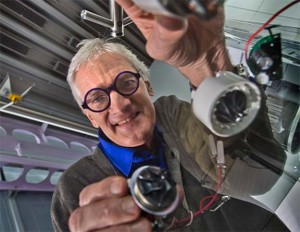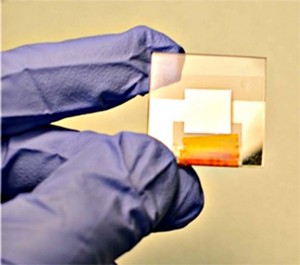It’s best known for its vacuum cleaners and fans, but British appliance company Dyson could be looking to get into electric cars, as well, according to recent reports out of Europe.
The company, founded by inventor James Dyson in 1987, has notably encouraged such speculation by hiring several Aston Martin veterans in recent months, including the former head of the car company’s product development operations. Dyson also purchased a Michigan start-up development what has been described as breakthrough battery technology, while also receiving funding for EV development from the British government.
Dyson would be the latest in a string of automotive outsiders looking to crack a traditionally closed industry by focusing on battery-electric technology. For the moment, however, Dyson has declined to directly address whether it is, indeed, hoping to take on traditional automotive brands, as well as newer EV entrants like Tesla.
The latest round of speculation has been triggered by Aston’s hiring of David Wyer, who spent 22 years at Aston Martin – most recently as the automaker’s head of purchasing. Wyer will now serve as Dyson’s head of procurement. He’s the latest auto industry veteran to join Dyson, including Ian Minards who had also worked at Aston – the last 10 years serving as the luxury sports carmaker’s head of product development.
Reports from the European press indicate Dyson is not only hiring specialists from the auto industry but others focusing on machine learning and autonomous systems. That has led to speculation that Dyson will make a push into autonomous, and even self-driving vehicles.
This isn’t the first time the Dyson name has come up in discussions about the future of the auto industry. Speculation started circulating in October 2015 when the appliance maker unexpectedly announced the purchase of Sakti3, a spin-off of the University of Michigan for around $150 million. Sakti3 has been developing so-called solid-state lithium-ion batteries, something proponents believe could improve reliability and, if used in an automobile, greatly increase vehicle range and performance.
“We are keeping a very open mind” as to how such next-generation technology could be used, founder and chief engineer James Dyson said at the time, committing the company to spend as much as $1 billion to set up a battery plant using Sakti3 chemistry.
(For more on Dyson’s purchase of Sakti3, Click Here.)
Solid-state batteries could become a widespread alternative to current lithium-ion technology, experts generally agree, with applications in everything from smartphones to cordless appliances and even stationary backup systems. But if they could deliver longer range, improved performance and faster charging times – without a major increase in costs – proponents are betting the technology could make electric vehicles far more appealing to consumers.
Sakti3 is just one of many companies working on the technology. As TheDetroitBureau.com recently reported, Toyota is believed to be working on solid-state batteries for use in a new generation of EVs it plans to put into production early in the coming decade.
(What does Toyota have in development? Click Here.)
Adding more fuel to the rumors that Dyson will get into the automotive business, the British magazine Autocar uncovered a document published by the UK government last year indicating it was “funding Dyson to develop a new battery electric vehicle at their headquarters in Malmesbury, Wiltshire.” It indicated the project would generated “174 million pounds ($284 million) of investment in the area, creating over 500 jobs, mostly in engineering.”
The document was, however, subsequently revised and now indicates, “The Government is providing a grant of up to 16 million pounds ($26 million) to Dyson to support research and development for battery technology at their site in Malmesbury.”
Asked about the recent hirings and its broader plans, Dyson told the Bloomberg news service, “We have historically recruited from a wide range of backgrounds, as we are a broad church and are developing a multitude of technologies. We plan to recruit an extra 3000 engineers and scientists by 2020 and are working with more than 40 universities globally.”
Whether Dyson will actually press into the costly and competitive automotive market is far from certain. But it wouldn’t be alone. Among other outside firms looking at options are Alphabet, with its autonomous Waymo unit, and Apple, which has slowly begun to confirm long-standing rumors of an ambitious automotive project. Jia Yeuting, a tech billionaire often billed as China’s Steve Jobs, has also been funding two EV start-ups: Faraday Future and LeEco.
But Waymo and Apple appear to have come to the conclusion that they’ll do better by development advanced technologies that can then be sold to existing automotive manufacturers. And that is an option Dyson might also explore.
(Flood of long-range electric cars due to plug into U.S. market. Click Here to learn what’s coming.)



